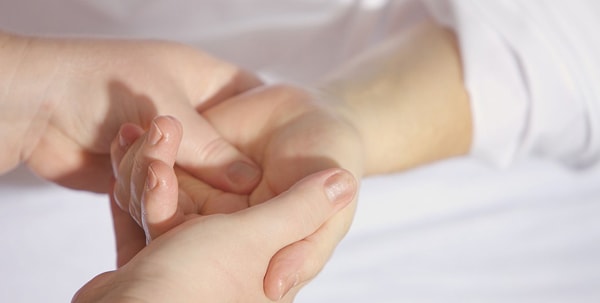 Your skin is designed to protect you from all types of infection including bacterial infection. The skin is in contact with many different types of bacteria every day, but most of the time the bacteria are unable to successfully grow on the skin and infect it. Occasionally, the skin can become infected. Most common type of infecting bacteria are Staphylococcus and Streptococcus, but other types of bacteria are possible from common activities such as gardening or swimming in “open water” such as lakes,
Your skin is designed to protect you from all types of infection including bacterial infection. The skin is in contact with many different types of bacteria every day, but most of the time the bacteria are unable to successfully grow on the skin and infect it. Occasionally, the skin can become infected. Most common type of infecting bacteria are Staphylococcus and Streptococcus, but other types of bacteria are possible from common activities such as gardening or swimming in “open water” such as lakes,ponds or the sea. More serious infections can be picked up in hospitals. Skin infections can range from being harmless to very serious or life threatening. Your skin is designed to protect you from all types of infection including bacterial infection. The skin is in contact with many different types of bacteria every day, but most of the time the bacteria are unable to successfully grow on the skin and infect it. Occasionally, however, the skin can become infected.
The most common type of infecting bacteria are Staphylococcus and Streptococcus, but other types of bacteria are possible from common activities such as gardening or swimming in “open water” such as lakes, ponds or the sea. More serious infections can be picked up in hospitals. Skin infections can range from being harmless to very serious or life threatening.
The common minor infections such as infected cuts and grazes, boils, infected hair follicles (folliculitis) and infected pimples or boils just inside each nostril can be red, swollen and painful, but they can often be treated effectively. Act now and start a convenient Bacterial Skin infections confidential consultation with our UK registered GP.
How can bacterial skin infections be managed?
Bacterial Skin infections in otherwise healthy people occur when the skin has been cut, grazed or broken in some way. Even sun burn can predispose the skin to infection. The amazing barrier function of the outer layers of the skin is breached, allowing the bacteria to infect the inner layers.
Infections can be avoided by keeping broken skin clean and protected until the skin has healed. It is not advisable to work in the garden or swim in open water with open skin injuries unless you can effectively protect the skin with a waterproof plaster or dressing. Infected spots and pimples just inside the opening of the nostril can be avoided by keeping the area clean and healthy by avoiding excessive picking or nose blowing. Often people suffer when they have hay fever as this makes the nose runny and irritated.
What medicines are available to treat bacterial skin infections?
A number of non-prescription preparations are available to buy to manage minor skin infections. Antiseptic preparations such as Savlon and Germolene can help to keep a minor wound clean and so avoid any infection. Should a minor infection actually develop, stronger options are available on prescription to fight the infection. Bactroban and Fucidin can be effective at controlling infected boils, folliculitis and smalls cuts and grazes. Naseptin nasal cream and Bactroban nasal ointment can be prescribed for painful, infected spots and pimples just inside the nostril.
A more serious or widespread skin infection will often require antibiotic tablets or capsules to control them. The Pharmacy2U Online Doctor service will not be able to provide you with these so if you think they may be needed please visit your GP Skin Infections Consultations and Treatments At Pharmacy2U.
Our UK registered GPs will review your details and if appropriate, can provide prescription-strength treatment for skin infections including Fucidin, Bactroban and Naseptin. To have a confidential and convenient Bacterial Skin infections consultation with our UK registered GP, visit us here.
